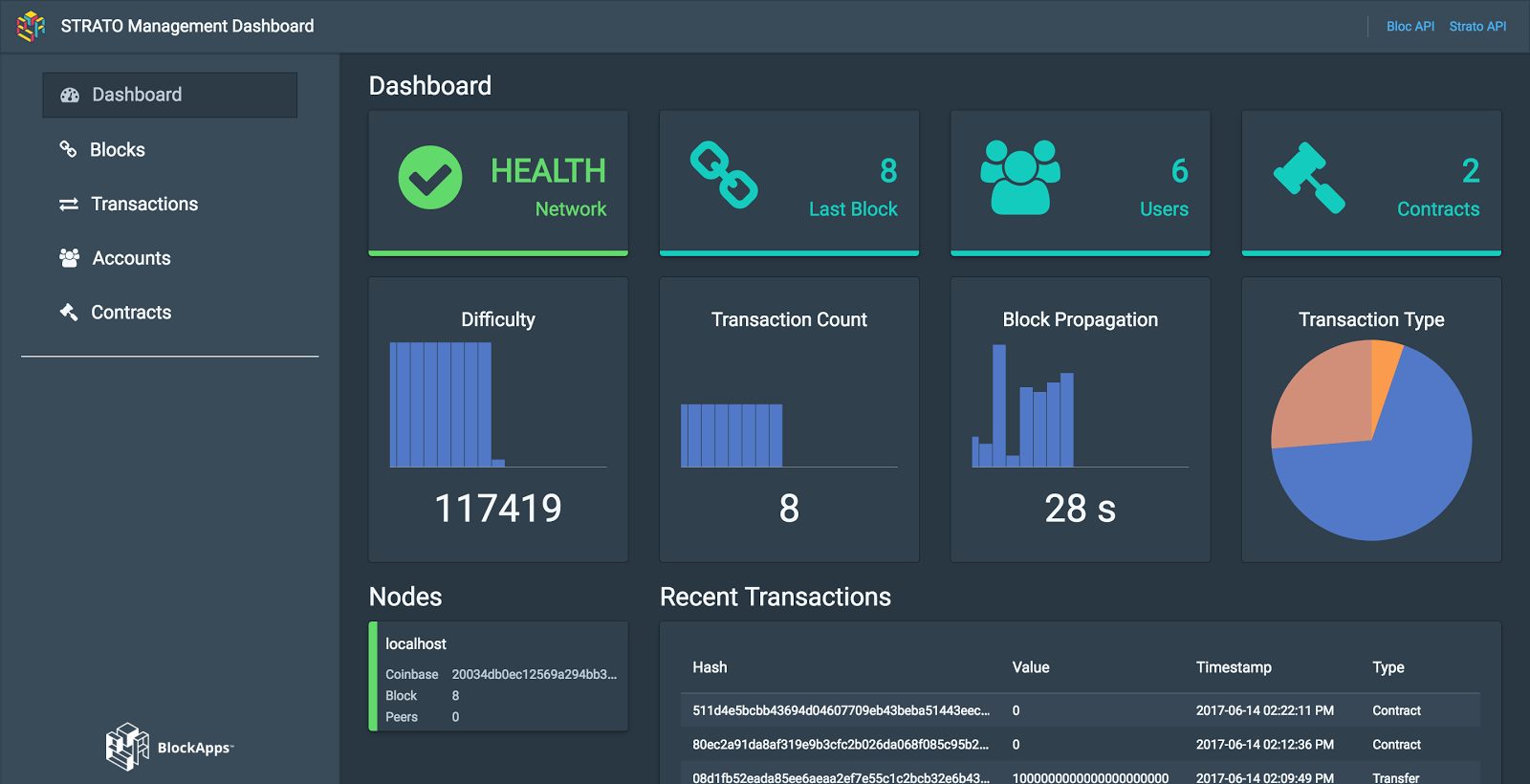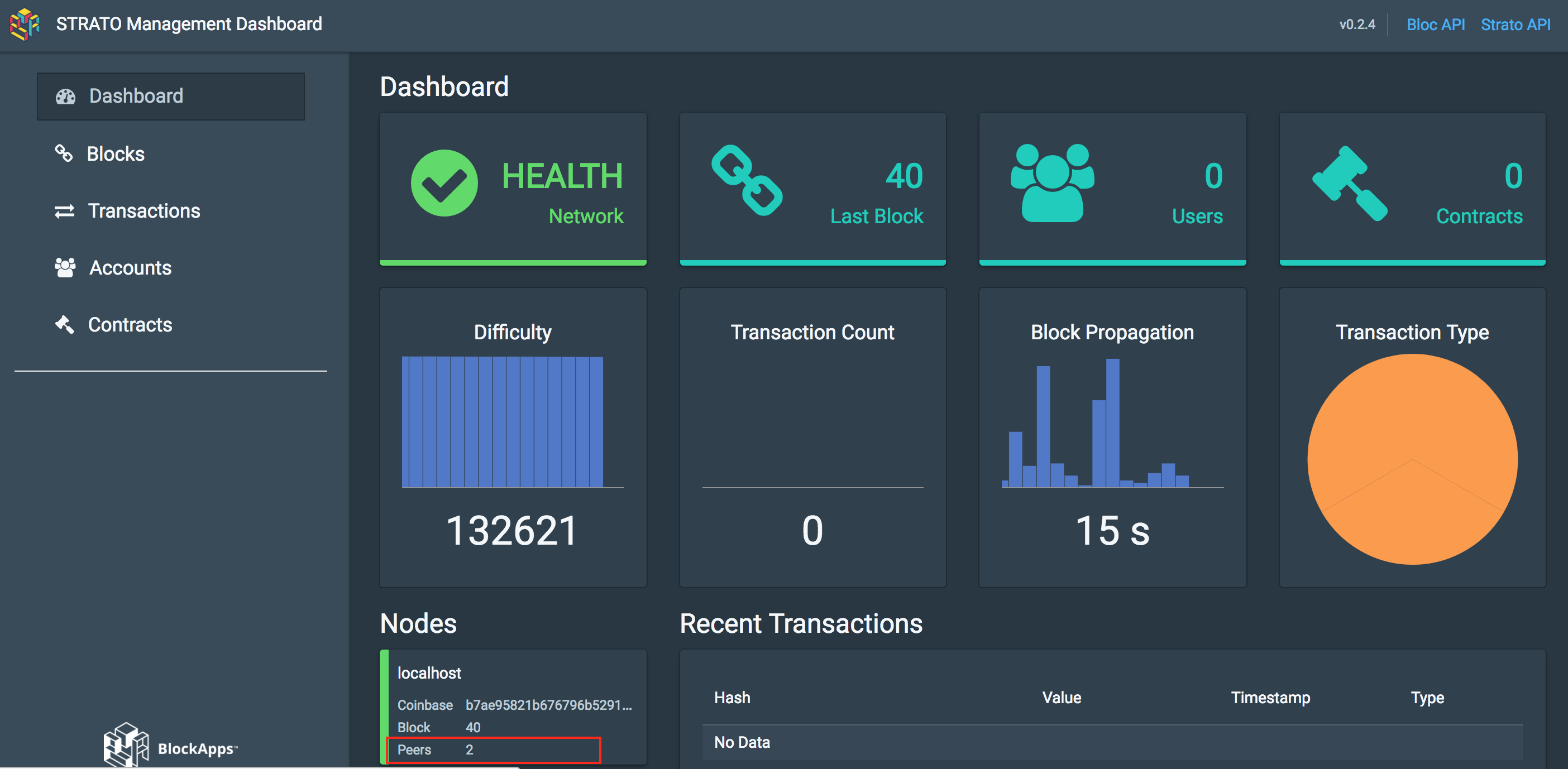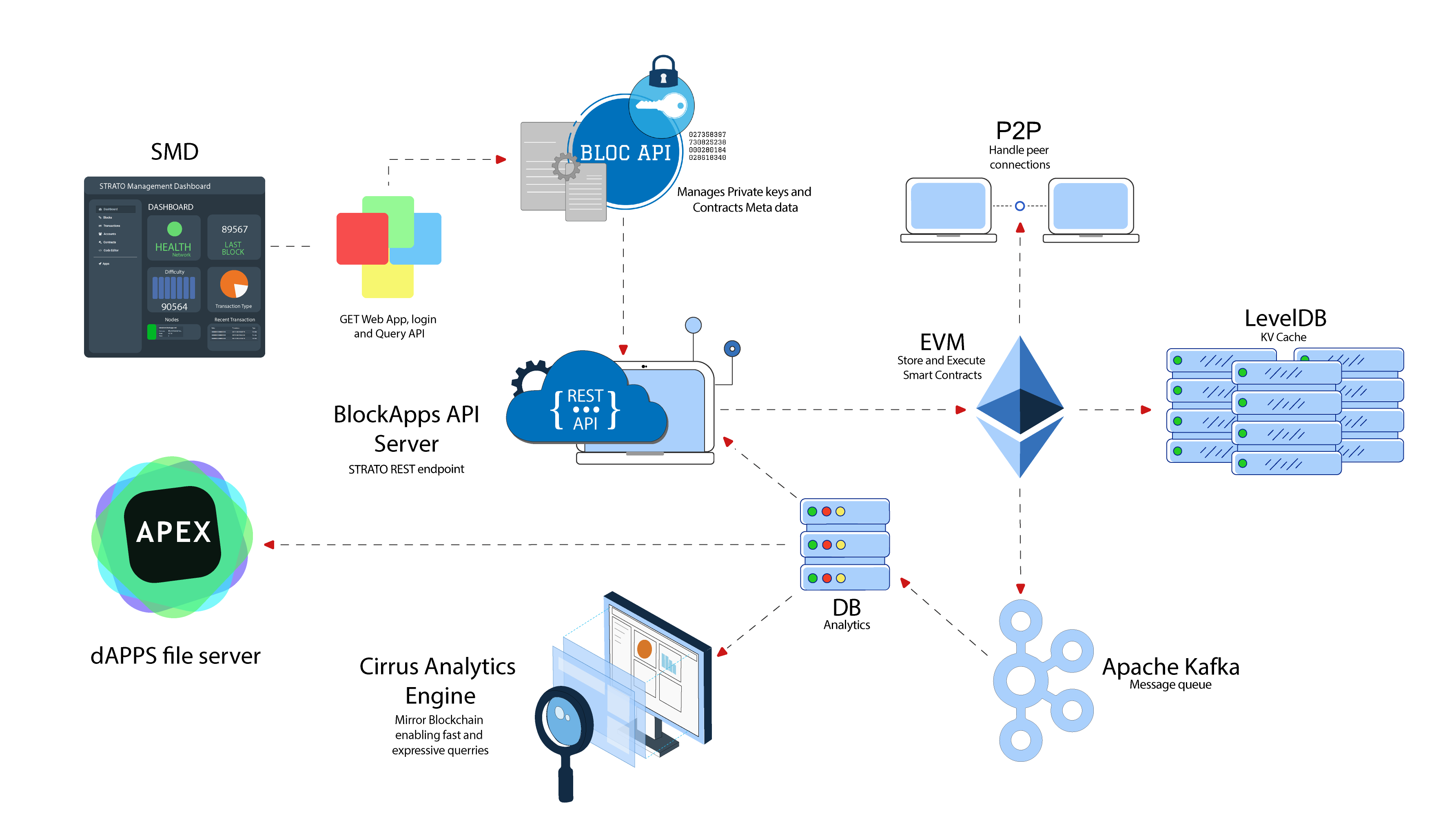- Bloc API: User/Account Management and Smart-contracts management via API.
- STRATO API: Blockchain API for blocks and transactions.
- Cirrus: Index and search smart-contracts, SQL-like query API for looking up smart-contracts and state changes.
- STRATO Management Dashboard (SMD): Web based UI for your Private Ethereum Blockchain Network using Bloc/STRATO API for User and Contracts management & offering SQL like query interface for smart-contracts.
To use this guide you will need to have signed up for our Developer Edition Trial, if you have not already done so sign up here: http://developers.blockapps.net/trial
Linux/MacOSX:
-
Install Docker on your machine
-
Install Docker Compose on your machine
-
For Mac users: Install
wgetusing Homebrew (use the steps below):-
Homebrew:
ruby -e "$(curl -fsSL https://raw.githubusercontent.com/Homebrew/install/master/install)" -
wget:
brew install wget --with-libressl
-
Windows:
- Install Docker Toolbox ("Docker for Windows" is not currently supported)
The list of the ports required to be available on the machine
Steps to setup and run STRATO Developer Edition using Docker on your machine:
-
Clone STRATO Getting Started repo using
git cloneor download and extract .zip archive. Andchdirorcdinto that folder. -
Configure docker registry login using the credentials [USER, PASSWORD, REGISTRY] you received via email after your registration for trial:
docker login -u <USER> -p <PASSWORD> <REGISTRY> -
Launch STRATO services:
-
Run:
chmod +x strato-run.sh -
Then run the script (runs
latestSTRATO version by default):./strato-run.shIf running on the remote machine, provide the NODE_HOST variable with the machine's external IP address or domain (reachable through the network) when running the STRATO:
NODE_HOST=example.com ./strato-run.shWindows users should always provide the NODE_HOST variable with the docker machine IP address (in most cases it is
192.168.99.100) when running the STRATO:NODE_HOST=192.168.99.100 ./strato-run.shor to run
stableversion:./strato-run.sh --stable
-
-
Check if STRATO services are running (using
docker ps) & view the Strato Management Dashboard athttp://localhost/(orhttp://<remote_node_host>/when running on remote machine)If
NODE_HOSTis set in step 3, use it's value instead of thelocalhosthereinafter -
Explore the Bloc and STRATO API docs via the top right link on the Dashboard (http://localhost)

- Default credentials for UI web pages:
username: admin password: admin - API Docs can also be accessed at these endpoints directly:
strato-api: http://localhost/strato-api/eth/v1.2/docs bloc api: http://localhost/bloc/v2.1/docs
- Default credentials for UI web pages:
-
Refer documentation here to get started with developing a sample app: https://github.com/blockapps/blockapps-ba
-
Reach out to BlockApps team for more info on support and enterprise licensed subscription: http://blockapps.net/learn-more-blockapps-strato-demo/
To stop a running instance of STRATO Developer Edition on your machine, run this command (from within the git cloned getting-started folder)
./strato-run.sh --stop
To stop and wipe out a running instance of STRATO Developer Edition on your machine, run this command (from within the git cloned getting-started folder)(you will lose state of any transactions/data created in the blockchain)
./strato-run.sh --wipe
If you can't run your own STRATO instance on your machine, try our public instance (accessible to anyone with the credentials, so don't host Production or Production-like apps/content):
http://stratodev.blockapps.net/
STRATO services need the following ports to be available on the machine (refer docker-compose.yml for details):
:80, :443 (for Nginx)
:30303, :30303/UDP (for Strato P2P)
First do:
sudo apt-get install -y tmux tmuxinator
then you can get an overview of all processes using:
tmuxinator start strato
For tmux usage refer to tmux guide.
Consider using the tmux mouse mode plugins for better experience.
- In early alpha, bootnode may go down and blockchain data wiped out during refreshes and upgrades
- Use only for testing
You can now run your local STRATO node peering it to the main bootnode and experience a multinode blockchain test network.
Here's the command to start your local node to connect and sync with our bootnode:
BOOT_NODE_HOST=52.232.191.102 ./strato-multinode-run.sh --stable
- The bootnode is: stratodev.blockapps.net
- Bootnode Dashboard: http://stratodev.blockapps.net/
Recommended VM capacity: 4vcpu, 16G
- In early alpha, blockchain data wiped out during refreshes and upgrades
- Use only for testing
You can now run your local STRATO multi-node test network. Here's the command to start your local multi-node network:
BOOT_NODE_HOST=strato ./strato-multinode-run.sh -local
To wipe out and stop the local multinode network (volumes wiped so you'll lose state)
./strato-multinode-run.sh -local -wipe
Here's a quick screenshot of local multinode network dashboard with 2 peers:


